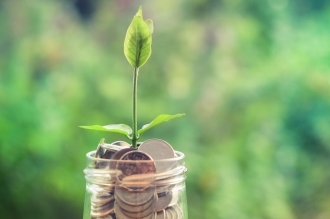Covid-19, Financial Services, Investments, Latvia, Legislation, Markets and Companies
International Internet Magazine. Baltic States news & analytics
Saturday, 20.04.2024, 15:46
The ministry plans to fuel Latvia's economics with EUR 2.2 bln
 Print version
Print version |
|---|
The government is due to decide on the draft strategy at the weekly Cabinet meeting today.
The strategy includes five lines of action: Human Capital, Innovation, Business Environment for Export Capacity, Availability of Finance and Infrastructure.
According to the strategy, up to EUR 2.2 billion could be invested in infrastructure a year until 2023. The private sector's R&D expenditure is expected to reach EUR 300 million and funding available for lending and guarantees EUR 1.3 billion. The number of people involved in adult learning programs would reach 165,000 by 2023 and the export volumes of the company supported by the government would grow by 30%.
The Economics Ministry indicated that a clear strategy will ensure fast growth, therefore, the ministry proposes a three-step approach - to stabilize the economy in 2020, refocus the economy from 2021 to 2022 and start a new growth phase in 2023.
The stabilization phase envisages a set of temporary emergency measures, primarily aimed at stabilizing the financial situation of the population and businesses under the circumstances of the Covid-19 crisis and curbing the spread of the virus in Latvia.
The refocusing phase envisages providing new opportunities to businesses and residents, with the emphasis on innovation, digital transformation, lifelong learning and orientation towards structural reforms, accordingly adjusting state support mechanisms.
In the growth phase, the government would develop a package of medium-term support measures for the transformation of the economy, based on dynamic export growth, ensuring economic growth through increased productivity, automation, digital transformation, support to business growth and fast-growing industries and ecosystems.
The draft strategy worked out by the Economics Ministry does not name specific measures for the mitigation of the crisis impact but the ministry's work group will work them out by July 1.
Earlier, Economics Minister Janis Vitenburgs (KPV LV) told LETA that Latvia's economic recovery plan would include implementation of suspended but well prepared construction projects. Vitenbergs said that these could be large development projects commissioned by the state but did not reveal any details about these plans, which he said are still being debated and that the final decision on them would be taken by the Cabinet of Ministers.
According to information at LETA's disposal suggest that the largest construction projects waiting to be launched include a prison in Liepaja, an acoustic concert hall in Riga and new buildings of the Constitution Protection Bureau and the State Security Service.
The minister said that the government might approve the launch of ten major infrastructure and construction projects.
- 28.01.2022 BONO aims at a billion!
- 26.08.2021 LLC Dizozols Investments finalizes investment attraction deal with Crowdestor with record-high profits
- 25.01.2021 Как банкиры 90-х делили «золотую милю» в Юрмале
- 30.12.2020 Накануне 25-летия Балтийский курс/The Baltic Course уходит с рынка деловых СМИ
- 30.12.2020 On the verge of its 25th anniversary, The Baltic Course leaves business media market
- 30.12.2020 Business Education Plus предлагает анонсы бизнес-обучений в январе-феврале 2021 года
- 30.12.2020 Hotels showing strong interest in providing self-isolation service
- 30.12.2020 EU to buy additional 100 mln doses of coronavirus vaccine
- 30.12.2020 ЕС закупит 100 млн. дополнительных доз вакцины Biontech и Pfizer
- 29.12.2020 В Rietumu и в этот раз создали особые праздничные открытки и календари 2021








 «The Baltic Course» Is Sold and Stays in Business!
«The Baltic Course» Is Sold and Stays in Business!

